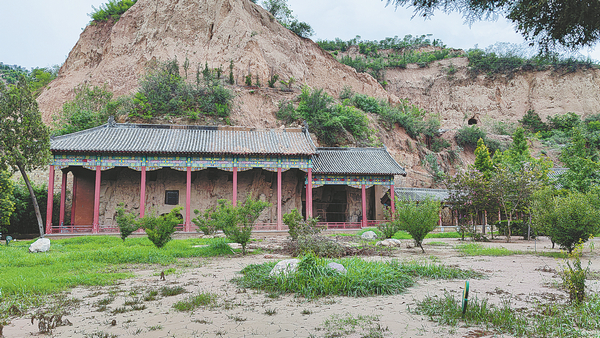

When a devastating flood hit Henan province in late July, resulting in huge loss, the cultural heritage, which had witnessed centuries or even millennia of vicissitude, also faced a rare threat.
A widely circulated online post written by Tian Kai, director of the Henan Provincial Cultural Heritage Administration, seemed to ignite public concern for the destiny of these relics.
He wrote: "As a worker for cultural relics, the safety of the relics is more important than our life. I burst into tears."
Over 400 cultural heritage sites in the province were damaged in the deluge, according to statistics of the administration, and 57 percent of them are "unmovable heritage sites", such as historical monuments, ancient architecture and grottoes. When floods came, they had no opportunity to be moved elsewhere.
Nevertheless, the public now has a chance to contribute to restoring these damaged relics. The China Foundation for Cultural Heritage Conservation and internet company Tencent recently cooperated to start a philanthropic program funding the emergency rescue and restoration of the Henan relics.
It is part of the annual Chinese online philanthropic campaign 99 Giving Day, which was first launched by Tencent on Sept 9,2015. Though this year's main session of the campaign lasted from Tuesday to Thursday, the fund will open for online public donations through to October.
As Tencent's fundraising platform shows, the program aims to receive a total donation of 13.3 million yuan ($2 million), based on evaluations of the cost.
According to Liu Yuzhu, the director of China Foundation for Cultural Heritage Conservation, no administration cost will be charged by the foundation to the fund, and all donations will be directly transferred to the Henan Provincial Administration of Cultural Heritage solely for restoration.
"We'll supervise the whole process of how the money is used," Liu says. "And the new conditions of the restored cultural heritage will also be updated to the public in time."
An expert panel is to be organized by the foundation to support restoration, and public donors are invited to visit the restored sites, Liu adds.
Henan is the main cradle of ancient Chinese civilization, with a rich reservoir of cultural relics. As many as 420 sites in the province are registered as "key cultural relic units under national-level protection", and its number of "unmovable cultural heritage sites" ranks second among all Chinese provincial-level administrative regions.
The raised funds will be used for restoration of 10 main sites in Zhengzhou, Luoyang, Kaifeng, Anyang, the four ancient cities with key historical importance, as well as other places across Henan.
For example, after the July deluge, some rocks in the 1,500-year-old Longmen Grottoes in Luoyang, also a UNESCO World Heritage Site, had become unstable and therefore urgently needed to be consolidated.
A section of the ancient city wall dating back to the Ming Dynasty (1368-1644) in Xunxian county collapsed during the flooding. In Ma's Manor, a key Qing Dynasty (1644-1911) official's residential compound in Anyang, structural cracks on houses appeared.
Restoration is scheduled to last from October to the end of 2022.Some donated money will be used to renovate natural environments surrounding the cultural heritage sites.
"It is becoming a consensus in our society that protection of cultural relics is not only entitled to professional workers," Liu says. "The public participation also plays a key role.
"Our career of protection has made many achievements with national-level support," he says. "And it also attracted strong scientific strength to join."
For protection of cultural relics, Tencent has joined digitization programs of Mogao Caves in Gansu province, Yungang Grottoes in Shanxi province and some sections of the Great Wall. All of them are world heritage sites. A program called Play for Good also ushered the digitized elements into online games and thus promote traditional Chinese culture and consciousness of protecting cultural relics among younger generations.
wangkaihao@chinadaily.com.cn